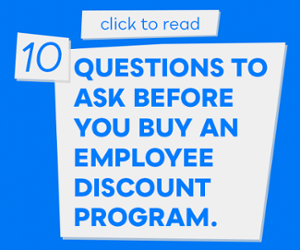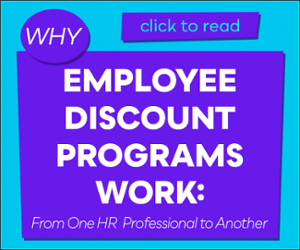The connections between engaged employees and engaged customers is concrete. If employees are buying into their employer, it’ll reveal itself in every facet and every interaction. Customers will naturally follow suit, as research has shown.

Besides exciting customers, an engaged workforce has countless other positives: increased productivity, reduced turnover, low absenteeism, among others.
Yeah, all the things that add up to higher profitability.
The bad news? Employee engagement is difficult. The worse news? The majority of the workforce now consists of a generation that’s challenging many of the long-held standards of what a workplace should be.
What do Millennials want? What keeps them engaged and “bought in” to an employer?
We’ve already explored a couple issues: their desire for more compensation, and a generational longing for flexibility. The former is a trait they share with every other generation, the latter is one that largely started with Millennials and has now spread its way to every generation.
Now we’ll explore a trait that’s seemingly exclusive to Millennials: the need to work for a company with a cause.
The Extended Worldview
Millennials, or those born in the 80s and 90s, were raised with messages gleamed through the learnings of generations before them: eat more veggies, take care of your family, respect nature, be kind to others.
 They saw the commercials on late night TV about hungry children in third world countries.
They saw the commercials on late night TV about hungry children in third world countries.
They may have become a bit teary eyed at the one with the abused animals set to a somber Sarah McLachlan tune.
Millennials’ mastery of modern technology gives them real-time information on human events – terrorism, world hunger, natural disasters, corporate greed and the growing income gap.
They connect with these occurrences, often in a direct manner, and as a result, these things become very real to them.
They’ve been told all their lives to care. Guess what? It worked.
If you’re wondering how a 20-something can be so concerned with eating organic food while weeping over a folk song on vinyl, just know that the world conditioned them to be like that.
The Raw Data
Millennials are acutely conscious of their surroundings and their ability (or lack thereof) to have an impact. To a large extent, the generation recognizes the need for corporate profit, they just think business has a responsibility to do more than make money.
As this data (culled from our massive collection of Employee Engagement Statistics) shows, many Millennials are eager to sign on with a company that gives back and/or acts ethically:
- 84% of Millennials say that helping to make a positive difference in the world is more important than professional recognition (Bentley University)
- 82% of Millennials said it was important to them to have a career that does some good in the world (Clark University)
- 63% of Millennials like their employers to contribute to social or ethical causes (Brookings)
- 6 in 10 Millennials cite a “sense of purpose,” as part of the reason they chose to work for their current employers (Deloitte)
If you need more evidence, check out these numbers (pulled from out Millennials Loyalty Statistics collection). Millennials aren’t just looking for good deeds from employers, they’re willing to change the brands they spend with based on corporate behavior:
- 47% of millennials would change brands if their current brand were found to have bad business practices (Adroit Digital)
- 1 in 3 millennials will boycott or support businesses based on causes (TBWA/Worldwide)
- 52% of millennials think brands should be willing to change based on consumer opinion (Adroit Digital)
 4 in 5 millennials said they'd be more likely to purchase from a company that supports a cause they care about (if price and quality were equal) and 3 in 4 would think more highly of a company that supports a social cause (TBWA/Worldwide)
4 in 5 millennials said they'd be more likely to purchase from a company that supports a cause they care about (if price and quality were equal) and 3 in 4 would think more highly of a company that supports a social cause (TBWA/Worldwide)- Over 85% of millennials correlate their purchasing decisions (and their willingness to recommend a brand to others) to the responsible efforts a company is making (SquareSpace)
- 73% of millennials are willing to try a new, unfamiliar product if it supports a cause (SquareSpace)
The Takeaway
To most Millennials, the American Dream looks far different than previous generations. To them, getting rich isn’t a high priority, at least not at the expense of their souls. (Though compensation – in the form of salary as well as corporate perks and employee benefits – is very appealing to them.)
As we’ve mentioned before, most Millennials aren’t interested in enabling the next Wolf of Wall Street either. But they’re okay with big profits as long as their company is doing something to change the world (the companies they most want to work for? Apple and Google).
Here are a few basic ideas that might make all the difference in the world to your youngest employees:
- Encourage on-the-clock employee volunteerism
- Create a corporate giving program
- Or agree to match employee donations to certain causes
- Form partnerships with local non-profits
- Be honest and open about company finances
- Promote – and enact – ethical practices
- Check out our "Nice Guys Finish First" eBook for tons more examples of how to be kinder in business
Regardless of size, any company can create an atmosphere that’s comfortable to Millennials. Supporting a cause doesn’t mean killing profitability or turning your lobby into an endangered animal sanctuary.
The good news is all of these activities can align with the company brand. The better news is these small things will matter a great deal to many employees and prospective employees.
(Occupy image courtesy of Aaron Bauer)





